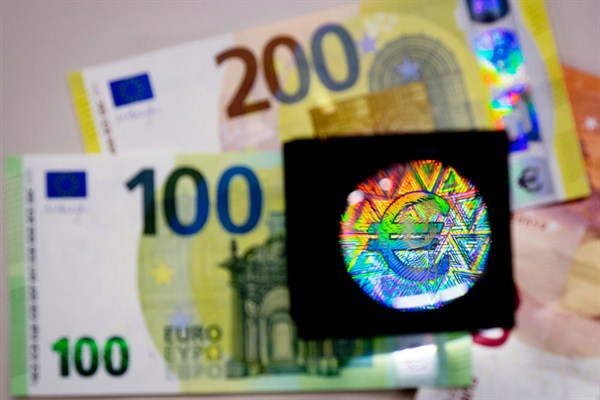Just weeks before the Trump administration reimposes sanctions against Iran in November, a growing gulf has emerged between the United States and Europe. Denouncing Washington’s ability to dictate with whom they can trade, European politicians have declared their desire to build alternate institutions to bolster Europe’s financial autonomy. However, Europe will find few meaningful options to insulate itself from a largely U.S.-run global financial and trading system.
So far, the discussions about European economic autonomy have proposed action along two lines of attack. To begin with, European leaders, including European Commission officials as well as ministers from member states, have called for a European alternative to SWIFT—the Society for Worldwide Interbank Financial Transactions, which provides messaging services for global banks. Based in Belgium and technically a private sector cooperative organization, SWIFT should be less vulnerable to U.S. sanctions because the global banking system, including U.S. banks, remains dependent on its services. But the Trump administration has threatened to sanction individual SWIFT board members if they do not cut off Iranian banks from the global financial system.
A more specific response to the reimposed Iran sanctions is a proposed “Special Purpose Vehicle,” which would be used to facilitate trade with Iran without the firms involved needing to access the U.S. dollar system or U.S. banks. Under normal circumstances, European firms would risk being cut off from the U.S. financial system—and, importantly for its role in global commerce, the U.S. dollar—if they violated sanctions. This Special Purpose Vehicle would insulate firms from that risk by providing government support for payment channels. The idea, championed by EU foreign policy chief Federica Mogherini, was endorsed by the remaining signatories of the Iran nuclear deal on the sidelines of September’s United Nations General Assembly.

